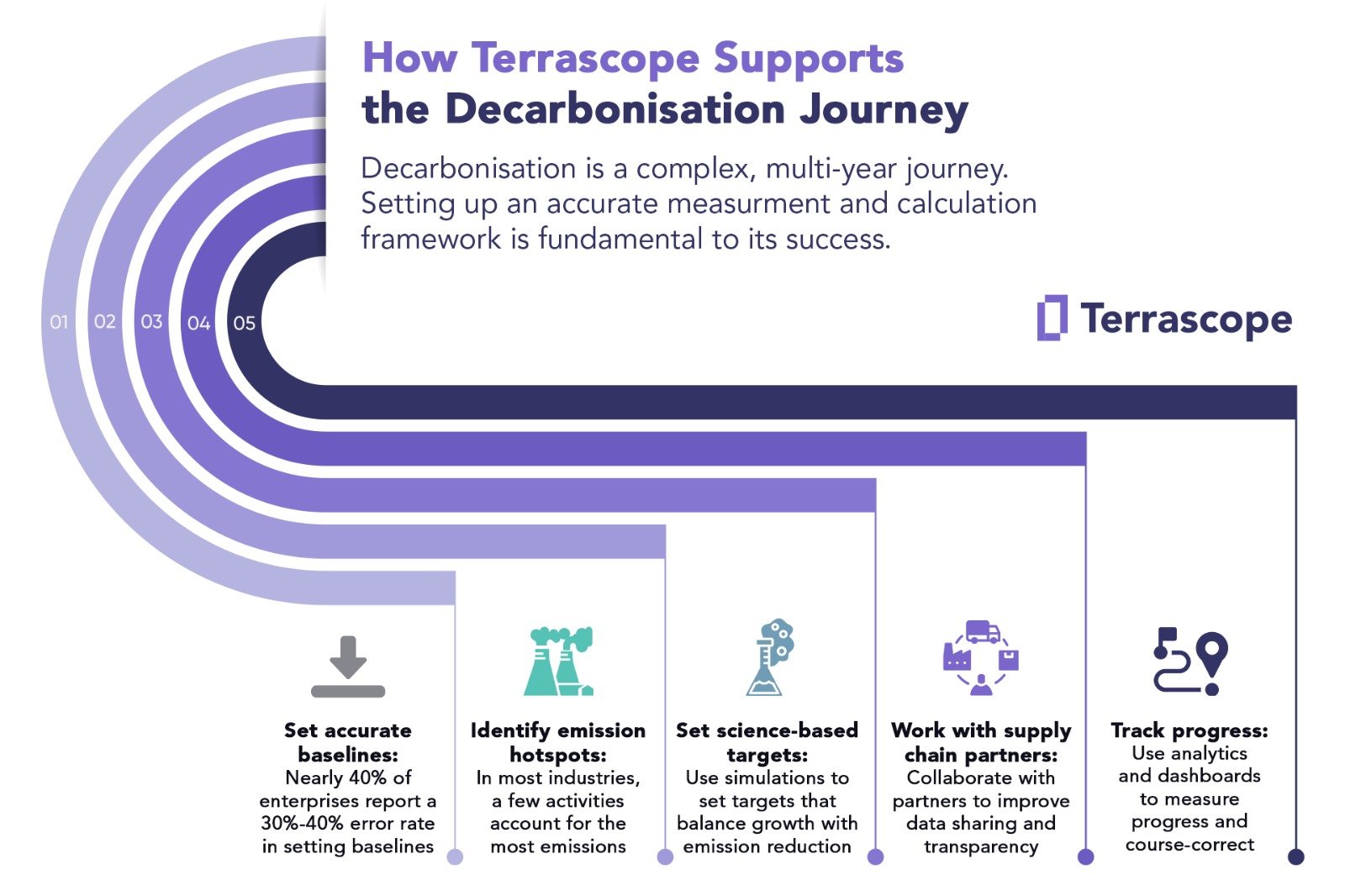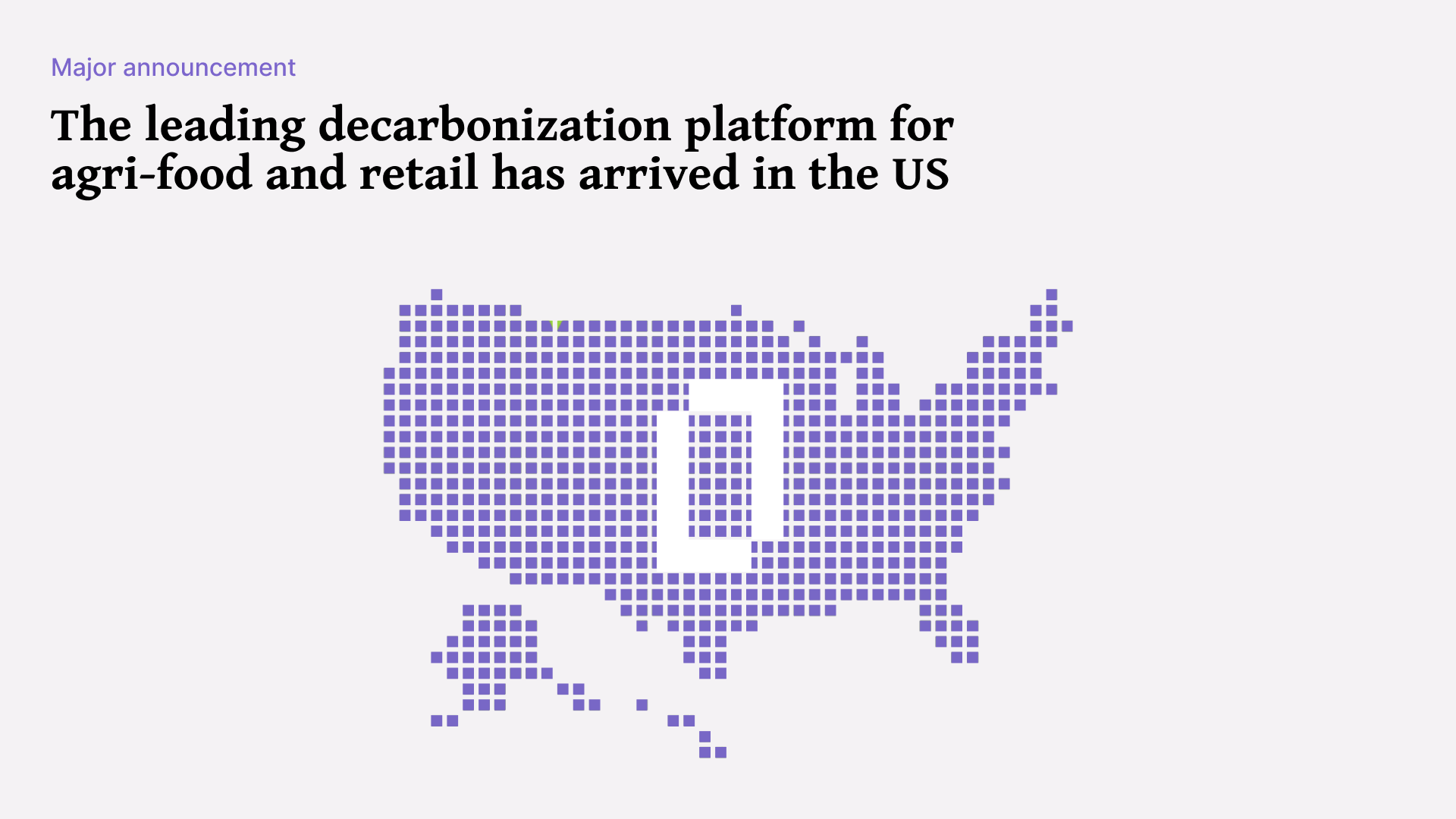Introduction
Businesses today are facing increasing pressure to adopt sustainable practices and address their own environmental impact. With the growing significance of sustainability in business practices, carbon accounting has become a crucial tool for companies aiming to be environmentally responsible in addressing the urgent challenges posed by climate change. Companies that prioritize carbon accounting and implement effective emission reduction strategies not only contribute to global climate efforts but also gain several competitive advantages. In this blog, we will delve deeper into the importance of carbon accounting for businesses – exploring the various benefits it offers, the challenges present and outlining key steps for effective carbon accounting.
The Business Benefits of Carbon Accounting
The importance of carbon accounting for businesses cannot be emphasized enough – it helps businesses obtain a granular understanding of their environmental impact and drive effective climate action. While regulators, investors, and consumers put pressure on enterprises to adopt carbon accounting, enterprises should also consider the many business benefits of carbon accounting such as
- Enhanced reputation and stakeholder engagement: Incorporating carbon accounting into business operations enhances corporate reputation and stakeholder engagement. Modern consumers are increasingly eco-conscious and seek products and services from environmentally responsible companies. By accurately measuring and disclosing their carbon footprint, businesses demonstrate transparency and commitment to sustainability, building trust and loyalty among their environmentally-conscious customers.
Furthermore, investors and partners are also placing greater emphasis on environmental considerations when choosing to collaborate or invest in a company. Carbon accounting provides an opportunity to attract responsible investors and like-minded partners who share the vision of mitigating climate change. - Regulatory compliance and risk mitigation: Governments worldwide are implementing stricter environmental regulations to combat climate change. Non-compliance can lead to hefty fines and reputational damage. Carbon accounting ensures that businesses remain aware of and adaptable to evolving environmental regulations, reducing the risk of non-compliance and potential financial liabilities.
Moreover, businesses that effectively manage their carbon emissions are better equipped to address climate-related risks, such as supply chain disruptions, extreme weather events, and resource scarcity. Proactively reducing carbon emissions helps in building resilience against these risks. - Future-proofing the business for longevity: The shift towards climate-conscious practices is not merely a trend, it is a fundamental change in the way businesses operate. Governments, industries, consumers, and investors are increasingly prioritizing sustainability. Carbon accounting allows businesses to remain relevant and viable in a changing world by aligning with evolving environmental priorities.
- Gaining a competitive advantage: Sustainability has become a differentiating factor in the marketplace. Companies that incorporate carbon accounting and implement robust emissions reduction strategies stand to gain a competitive edge. They appeal to environmentally-aware consumers who prefer sustainable products and services.
Businesses outperform competitors that have outdated carbon management practices, attracting more customers and clients who value sustainable solutions. This competitive advantage can lead to increased market share and long-term success. - Addressing the climate crisis and taking greater social responsibility: The importance of carbon accounting extends beyond business benefits; it is also a crucial step towards addressing the global climate crisis. By quantifying and reducing emissions, businesses actively contribute to mitigating climate change. This proactive approach is essential to combat the severe consequences of rising temperatures, extreme weather events, and ecological disruptions.
Moreover, businesses have a social responsibility to operate ethically and sustainably. Carbon accounting allows them to fulfill their corporate social responsibility by minimizing their environmental impact and promoting a cleaner, greener future for all. For example, take a look at some of Terrascope's case studies, where companies have improved their carbon accounting efforts with our help.
Key Steps of Carbon Accounting
- Setting clear, science-based climate goals and reduction targets: Before undertaking carbon accounting, businesses must establish clear and measurable climate goals. These goals should align with scientific evidence and recommendations for limiting global warming. The Science-Based Targets Initiative (SBTi) provides guidance on setting ambitious and scientifically justified emissions reduction targets.
To set appropriate targets, businesses must understand their current carbon footprint using technologies like Terrascope, which can accurately measure and analyse greenhouse gas emissions across various operations. - Evaluating and improving supply chain sustainability: Taking a look at the supply chain is a key step in evaluating a business' overall carbon footprint holistically; Scope 3 emissions account for the largest part of most companies’ overall emissions. Businesses can work closely with their suppliers, encouraging them to adopt environmentally friendly practices and consider low-carbon alternatives. Collaboration and accountability within the supply chain can significantly impact the overall carbon footprint of a company.
Challenges of Carbon Accounting
As the world grapples with climate change, companies face formidable challenges in the realm of carbon accounting. First and foremost, increasing global regulations, exemplified by mandates from the European Union and other nations like the United States, Singapore, and Australia, require businesses to disclose climate-related information aligned with recommendations from the TNFD (Taskforce on Nature-related Financial Disclosures). These regulations extend to the measurement and reporting of Scope 3 emissions, which encompass indirect emissions along a company's value chain.
However, many businesses struggle with the accurate measurement of Scope 3 emissions. Approximately 90% lack comprehensive measurement capabilities, and 40% are ill-prepared to manage these emissions effectively. This data deficiency not only hampers compliance but also poses reputational risks, hindering the identification of impactful decarbonization initiatives.
Moreover, the translation of decarbonization targets into action remains slow due to internal challenges such as limited expertise, manual data processes, vague strategies, and organizational silos. Overcoming these hurdles is vital for businesses to achieve their emissions reduction goals and thrive in a world increasingly focused on climate change mitigation.

How Can Terrascope Help?
Terrascope’s end-to-end decarbonisation platform can play a vital role in simplifying the carbon accounting process for businesses. Through machine learning, advanced data analytics, and reporting tools, Terrascope can streamline data collection, analysis, and reporting, ensuring accurate and transparent carbon accounting down the line.
Exemplifying this, Terrascope was able to help UK-based food and beverage company Princes build operational resilience with data ingestion that was five times faster than the manual process. Terrascope improved Princes’ ability to make timely data-driven decisions and make significant progress in their decarbonization efforts.
Terrascope can also provide insights and recommendations to help businesses identify emission reduction opportunities and integrate carbon accounting into their decarbonisation strategies. For example, Terrascope was able to help MC Agri Alliance optimise its supply chain for a potential 25% reduction in scope 3 emissions through reduction scenarios.
Conclusion
In conclusion, carbon accounting is of utmost importance for businesses in the current global climate scenario. It offers numerous benefits, including enhanced reputation, compliance with regulations, competitive advantage, and addressing social and environmental responsibilities. Companies that implement carbon accounting and act upon the findings are better positioned to thrive in an increasingly sustainable business landscape. Embracing carbon accounting is not only an essential step towards mitigating climate change but also an investment in the long-term success and resilience of the business.
Frequently Asked Questions (FAQs)
1. What is carbon accounting?
Carbon accounting is the process of quantifying and monitoring the greenhouse gas emissions produced by a business's activities and operations. It involves calculating the carbon footprint to understand the company's environmental impact and identify opportunities for emissions reduction.
2. How can businesses start carbon accounting?
To begin carbon accounting, businesses should set science-based climate goals and reduction targets. A good first step can be leveraging Terrascope's expert capabilities in measuring emissions accurately and evaluating supply-chain's sustainability. By collaborating with suppliers and vendors, businesses can actively reduce their carbon footprint and contribute to a greener future.



